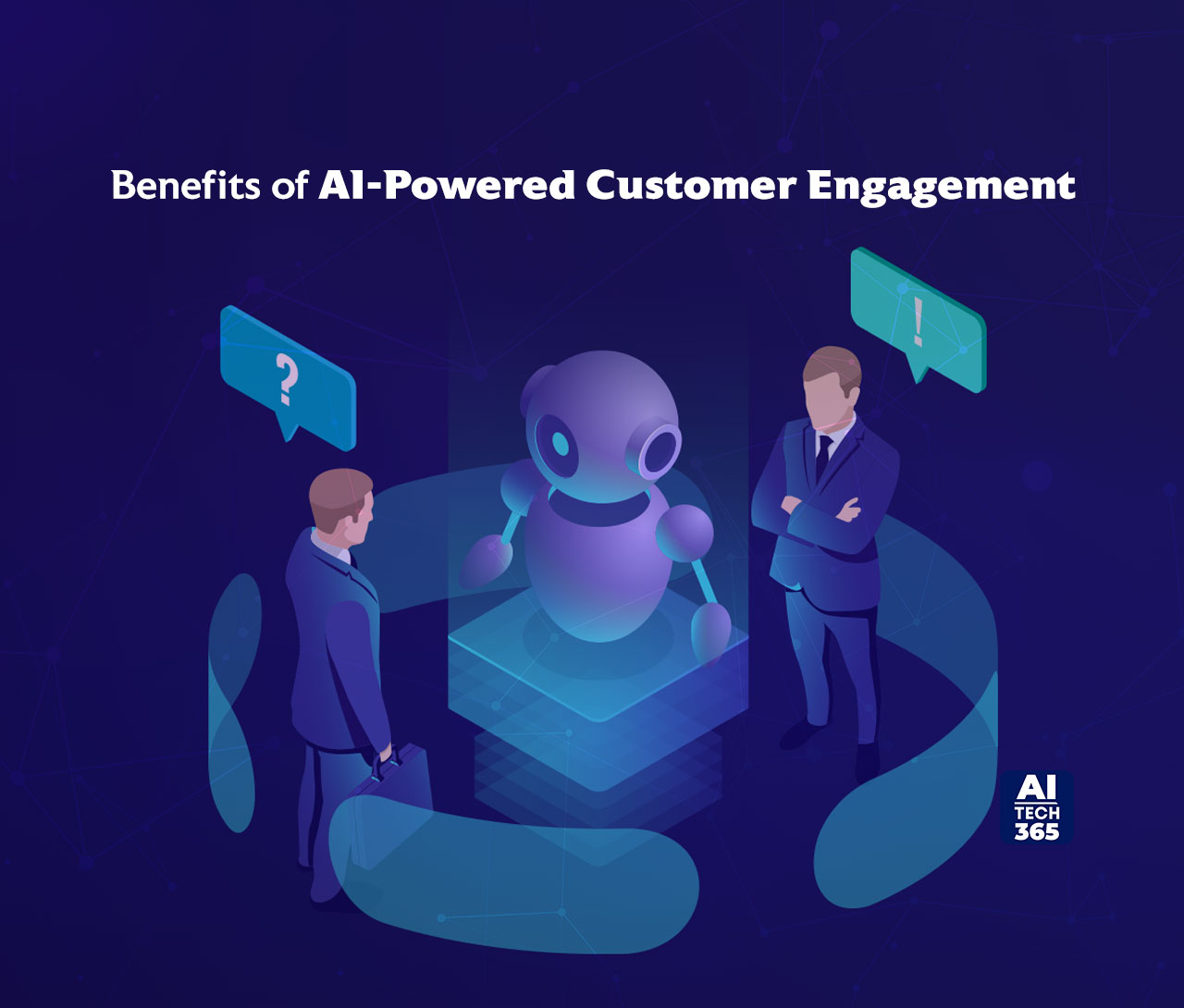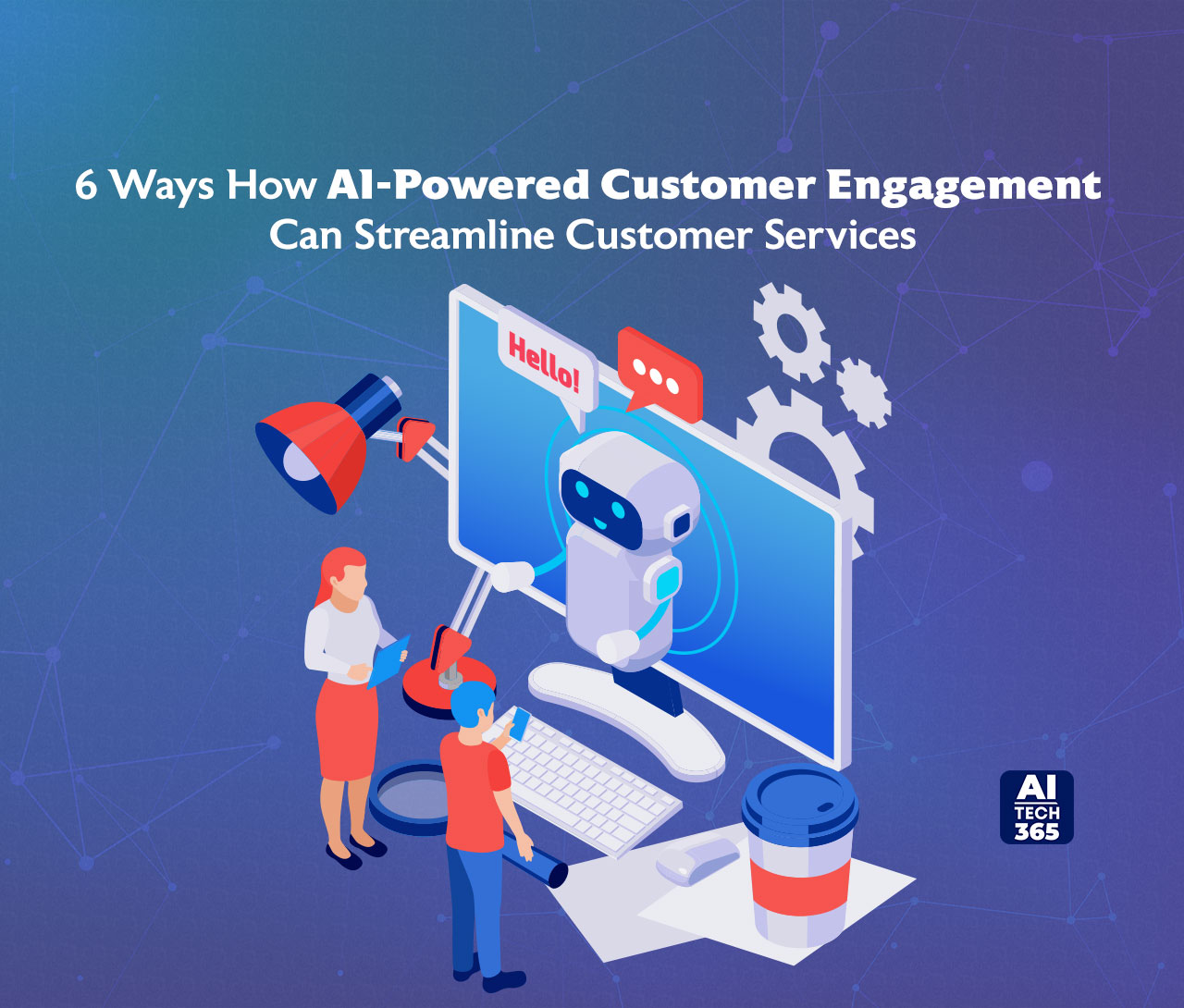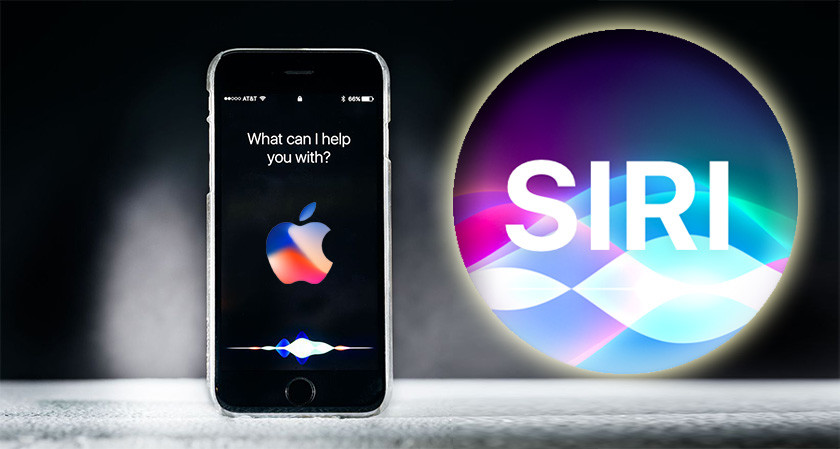Artificial intelligence (AI) is the talk of the town lately (more like the talk of the world). Nevertheless, it’s all for good reasons (hopefully). Statista reports that the global AI market is projected to reach a valuation of $826.70 billion by 2030.
This 28.46% growth rate of the industry is mainly due to its rapid adoption. Specifically, AI-powered customer engagement has witnessed a significant boom. Almost 70% of customer service leaders reported that using AI has reduced the time taken to resolve customer issues.
Interesting? The whys, whats, and hows will be discussed in the article. So, read on!
What is AI-Powered Customer Engagement?
AI-powered customer engagement refers to the use of artificial intelligence technologies to enhance and optimize interactions between businesses and their customers. By leveraging AI, businesses can provide personalized and seamless experiences to their customers across various channels, such as websites, mobile apps, social media, and customer service interactions.
This enables businesses to deliver tailored recommendations, personalized marketing messages, and efficient customer service. 63% of retail organizations leverage AI to enhance customer service.
Benefits of AI-Powered Customer Engagement
AI-powered customer engagement offers several benefits for businesses and customers alike:
- Personalization: AI algorithms can analyze large amounts of customer data to understand individual preferences and behaviors. This allows businesses to deliver personalized recommendations, offers, and experiences to each customer.
- Efficiency: AI-powered chatbots and virtual assistants can manage everyday customer queries efficiently, offering prompt and accurate solutions. This eases the burden on customer service representatives and speeds up the resolution of customer concerns.
- Seamless Experience: AI technologies enable businesses to provide a consistent and seamless experience across different channels. Customers can start an interaction on one channel and continue it on another without any disruption.
- Improved Customer Insights: AI algorithms can analyze customer data to uncover patterns, trends, and insights that can inform business strategies and decision-making. This helps businesses better understand their customers and anticipate their needs.
- Enhanced Customer Satisfaction: By delivering personalized experiences, efficient service, and relevant recommendations, AI-powered customer engagement can significantly improve customer satisfaction and loyalty.
6 Ways How AI-Powered Customer Engagement Can Streamline Customer Services
Enable great customer service experiences at scale
Using AI in customer service enables businesses to handle higher support volumes efficiently, ensuring customer satisfaction and loyalty. For instance, Liberty London uses Zendesk AI to identify customer intent, sentiment, and language, providing agents with valuable insights to personalize interactions.
Moreover, businesses can deploy bots across various channels, including email, social media, live chat, and messaging apps, to scale support. Bots help manage increased support volumes, especially during peak times like holidays or product launches.
Provide fast, 24/7 customer support
Customers expect quick, 24/7 support. Over 85% of customers desire proactive communication and outreach from businesses. Zendesk’s 2024 research finds customers are divided on bot vs. human assistance, with bots slightly favored for “immediate service” at 51%. Conversational AI allows digital agents to engage in natural, human-like conversations at any time, such as weekends or late nights, when human agents are unavailable. Chatbots quickly handle common queries, freeing human agents to address more complex issues.
Onboarding CX teams faster
AI assists in onboarding new customer service agents by providing real-time tips and feedback. It can suggest tone adjustments and surface similar support tickets for reference, helping new hires learn quickly and efficiently.
Improve efficiency and productivity
AI tools enhance agent efficiency by simplifying workflows. AI-powered chatbots handle requests, and automated processes manage repetitive tasks, reducing agents’ workloads and allowing them to focus on high-value tasks. Intelligent routing features analyze conversations to understand customer sentiment, language, and intent, improving routing accuracy and reducing escalations. Skills-based routing directs tickets to agents based on expertise, availability, and priority.
Deliver hyper-personalized interactions
AI acts as a personalized concierge for each customer, understanding their history and preferences, which helps agents meet customer needs more effectively. For example, Grove Collaborative uses AI-powered insights to enable agents to deliver personalized service, enhancing customer experiences without replacing human interaction. AI provides the context needed for efficient, tailored interactions.
What are the Three Key Challenges Facing Customer Service Leaders Today?
Complexity:
The COVID-19 pandemic has spurred a shift to self-service digital channels, where customers increasingly seek assistance. Yet, this leaves contact centers and assisted-chat functions handling complex issues. Balancing resource allocation and ensuring seamless experiences across all channels pose a significant challenge.
Higher Expectations:
As self-service channels gain traction for routine tasks, customers expect similar efficiency for complex inquiries. Businesses respond by adopting conversational AI and predictive engines to enhance the customer journey. However, this rapid technological advancement increases the demand for skilled professionals adept at managing these systems.
Squeezed Labor Markets:
The rising demand for specialized skills in customer service exacerbates talent acquisition challenges. A scarcity of qualified professionals leaves leaders struggling to fill crucial roles. To address this, organizations must invest in training, promote continuous learning, and explore alternative staffing models to meet evolving demands effectively.
Examples of AI-Powered Customer Engagement
Here are some real examples of AI-powered customer engagement:
Enhanced Customer Service
AI-powered chatbots and virtual assistants are being used by companies to provide instant responses to customer inquiries, assist with product recommendations, and guide customers through the purchasing process.
Example: Bank of America, a leading global banking and financial services provider, made waves in customer service by introducing Erica, their innovative chatbot. Erica, an AI-powered virtual assistant, is tailored to help customers with various banking needs, from checking balances to getting transaction history and even offering financial guidance.
Personalized Recommendations
AI algorithms analyze customer data, such as browsing history and purchase behavior, to provide personalized product recommendations and offers.
For example, e-commerce platforms like Amazon and Netflix use AI to analyze customer preferences and behavior to suggest relevant products or content.
Real-time Decision Making
AI technologies enable real-time decision making to improve marketing effectiveness. For instance, identifying customers using ad blockers and providing them with alternative UI components that can continue to engage them. AI-powered decision making helps businesses deliver hyper-personalized customer experiences and targeted marketing campaigns.
Sentiment Analysis
AI algorithms can analyze customer feedback and social media data to understand customer sentiment and identify areas for improvement in products or services. This helps businesses gain insights into customer preferences and opinions, allowing them to tailor their offerings and improve customer satisfaction.
For example, Amazon employs sentiment analysis AI to evaluate customer reviews of products. By categorizing sentiments as positive, neutral, or negative, Amazon can offer insightful reviews and recommendations to prospective buyers. This not only enriches the shopping journey but also builds trust among customers.
Intelligent Voice Assistants
AI-powered voice assistants, such as Amazon’s Alexa or Apple’s Siri, provide personalized and interactive experiences for customers.
These voice assistants can answer questions, perform tasks, and provide recommendations based on customer preferences, enhancing customer engagement and convenience.
Key Takeaways
Customers nowadays expect fast, customized service, so it’s crucial for companies to incorporate AI to stay ahead of the game. Sure, AI-powered customer engagement comes with its share of challenges, like any other area. But the benefits definitely outweigh the drawbacks. If you’re skeptical about using AI to improve the customer experience, start with free AI-powered customer experience tools such as Mailchimp, Vero, Freshchat, Qualaroo, etc.
There’s almost free versions of every AI tool out there on the market. With such artificial intelligence, the world really is your oyster.


